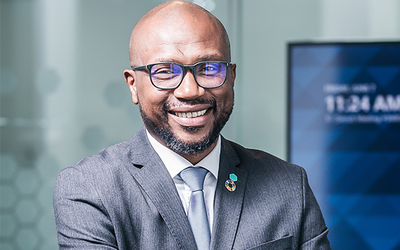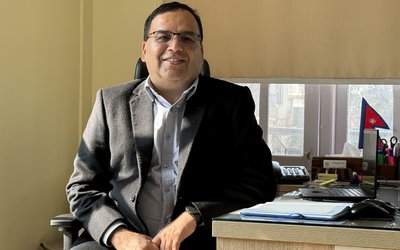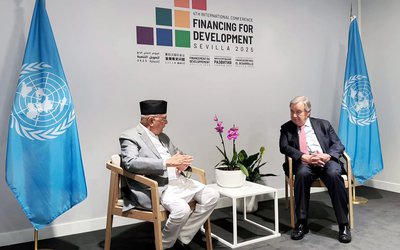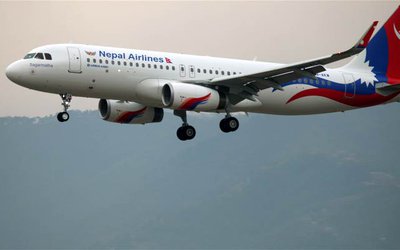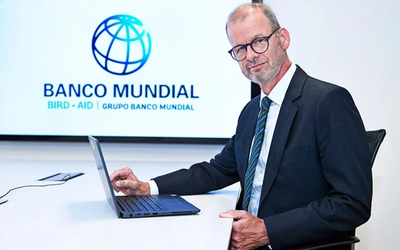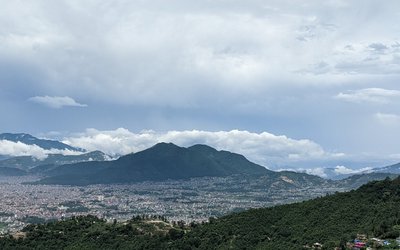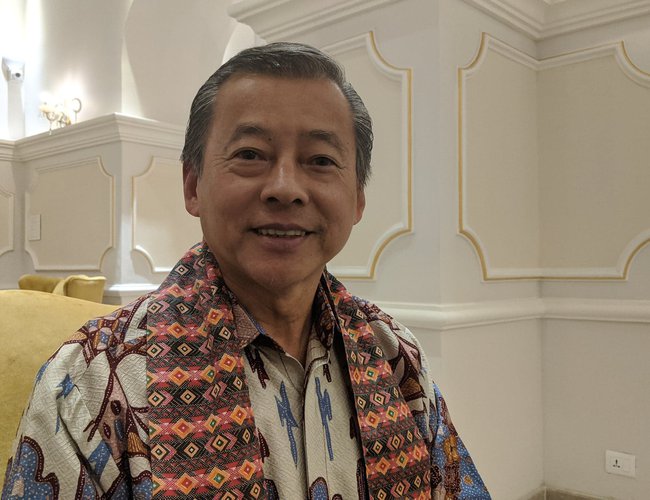
How do you see the agreement with Tribhuwan University?
TU and Singapore Management University (SMU) have decided to establish Institute of Innovation and Entrepreneurship (IIE) for the entrepreneurship development and innovation in Nepal. With his wife, George set up Border Mission Limited, a Charity Organization in 2015, with primary mission at humanitarian and community work; providing aid to the poor and needy in the bordering Himalayan regions of Nepal, India and Bhutan.
How did this idea come to your mind?
I looked at the Singapore Management University (SMU), one of the top two universities in Singapore. I met the dean from Imperial College London. We started this idea which will also benefit Singapore Management University. I realized that this MBA course also benefits Nepal. I attended some of the classes and I realized that the course will be helpful to Nepal.
Tribhuan University is one of the largest universities of Nepal with the students they have. We felt this is the right time for Nepal has to set up something like that of SMU. So I met the vice chancellor and I proposed he visit Singapore. Subsequently, I invited a team of TU directors under a training in Singapore in SMU. Both VC and directors felt that this is something of benefit to Nepal. So we have decided to set up IIE in TU.
Singapore is a developed country and Nepal is a least developed country, how can Nepal benefit out of this? How important is innovation here?
If you have a look at the history of Nepal, TU has produced many graduates. I realized that many of the graduates applied in the government offices and became civil servants in many public offices. If students join the IIE, it will definitely help students after graduation to choose other areas also. Our course is such that it encourages innovation and students may be more innovative. Instead of applying for government jobs, our course will help younger people to start their own start ups. That is something everybody can access in all the countries. Nepal is a country of young people and Nepal can make a lot of benefits from Singapore Management University affiliation. After completing our course, young Nepalese will be more capable to begin start up.
Many Nepalese students are going abroad for higher education in management. How can IEE help retain Nepalese to have quality and innovative education back in Nepal itself?
If you look at Nepal, you have 30 million population. However, Singapore has less than six million population. If young people cannot see opportunity in the country, naturally they will go to countries like India and Australia or even some of the countries in Europe. Our course will qualify them to start a start up even before they enter the work force. Our institution will provide them an opportunity to learn how to be a good entrepreneur. This is a worldwide trend now. Even in China many students think so because of technology. If you see India, the software business is a multibillion dollar industry. If they find the university within the country to make them competent, capable and innovative, they will prefer to stay home. As IIE's whole aim is directed to produce innovative students, it will serve that interest.
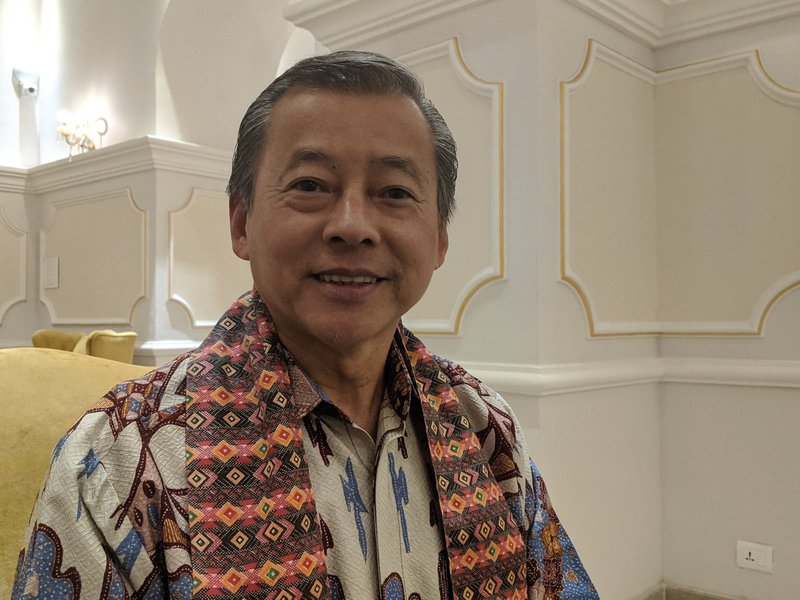
How can Nepal benefit from the growing market in India?
Nepal is a next door neighbor to India and Nepal has good relations with India. I believe this is something you can transform. I have talked with VC and I requested him to manage to collaborate with one or two universities in India like with SMU. It will greatly benefit Nepalese. SMU has collaborative partners in India and they have also institutions like IEE. If institutions can start the exchange program between Nepal, Singapore University and Indian University, this will benefit.
What is your experience of past five months working with Nepalese?
For instance, Nepalese have a very good impression in Singapore. Since they have been serving in the security sector of Singapore. A small number of our security forces are from Nepal. All over the years, Singapore has had good relations with Nepal. Looking at Nepalese in Singapore, what I can say is that Nepalese are capable and efficient given good training and schooling. This is one of the reasons we have decided to set up IEE in Nepal.
Nepalese are hardworking. In Singapore, Nepalese have very good impressions. If you put them up properly, Nepalese younger generation can make a lot of difference. If you provide good education, specially in innovation and entrepreneurship, Nepalese can bring better results contributing to your country.
Changing the mindset of people is a very long process. People's perception on the education system in Nepal, regarding the quality of education, cannot change overnight. It is a long process and it might take a decade. I am confident that Nepalese youth will realize that the education they acquire in Nepal will make them innovative and competitive. It is the quality and innovative education which can bring change in the country.
How does Nepal's current curriculum compare with other universities of the world?
You cannot say this is good or this is bad, comparing your curriculum with others. Singapore may have good curriculum compared to Nepal. However, Singapore's curriculum is a bit weaker than the curriculum of British Universities, like Oxford or Cambridge.
I convinced Singapore Management University to collaborate with Nepal's university because SMU can lead Nepal’s University. India can support Nepal also.
How do you view Nepal?
Nepal has many opportunities and potentials as well. For example, Nepal can make a big difference in tourism sector. I have seen a large number of tourists at Tribhuwan International Airport queuing for visa application. Tourism industry is something Nepal can still exploit for its economic benefits. However, Nepal needs to improve the airport system of issuing visa and so on. For this you need to have better management. For instance, in countries like Indonesia, tourism is the key industry but you do have tourism for mountain. For this you need people having entrepreneurial and innovative skills to say that we can do it.
In 80s when I started manufacturing, Singapore was transforming to be a financial city. Our country was just a fisherman firm sixty years ago. We have transformed it. Nepal has a number of opportunities along with population, land and nature. But you need to have people to understand this and transform these resources to benefit the country.
I hope we can change the mindset of the young people through the IIE and hopefully Nepalese young people will realize that Nepal has a market as well.
Nepalese political leaders always dream to make Nepal a Singapore. How do you look at this statement?
This is a good thing. If your politicians know how Singapore transformed through 1950s, 60s and 70s from a third world to first world country, it makes a lot of difference. Although Nepal needs a lot of improvement in various sectors including education and infrastructure, I do believe that Nepal can transform. When people realize, get educated and understand about innovation and enterprise, especially entrepreneurship, this can transform slowly. Politicians can identify which are the key areas for development.
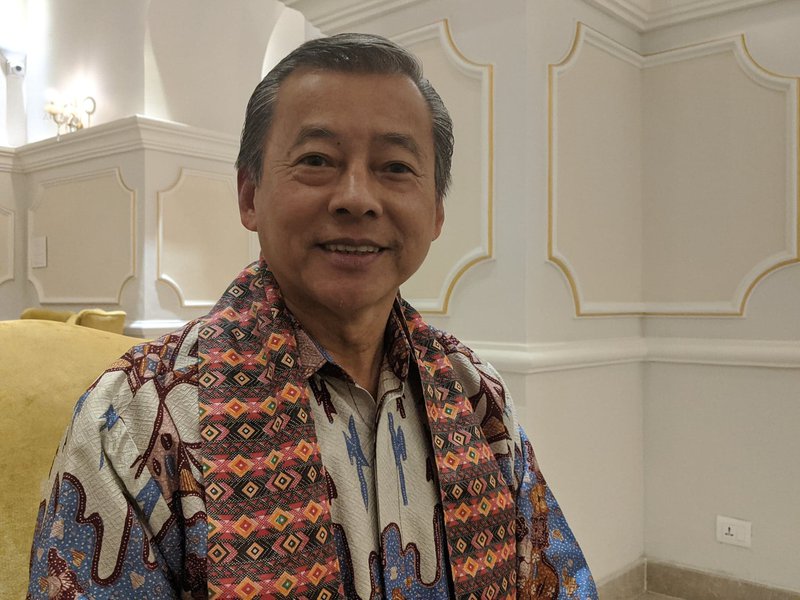
- MELAMCHI WATER SUPPLY: No Interruption During Monsoon
- Jun 25, 2025
- KOREAN RETURNEES: Successful Integration
- Jun 25, 2025
- UPPER TRISHULI-1: Engaging With Local
- Jun 25, 2025
- IME GROUP: Twenty Five Years Of Journey
- Jun 24, 2025
- NEPAL’S AIR POLLUTION: A Growing Health Concern
- Jun 24, 2025

